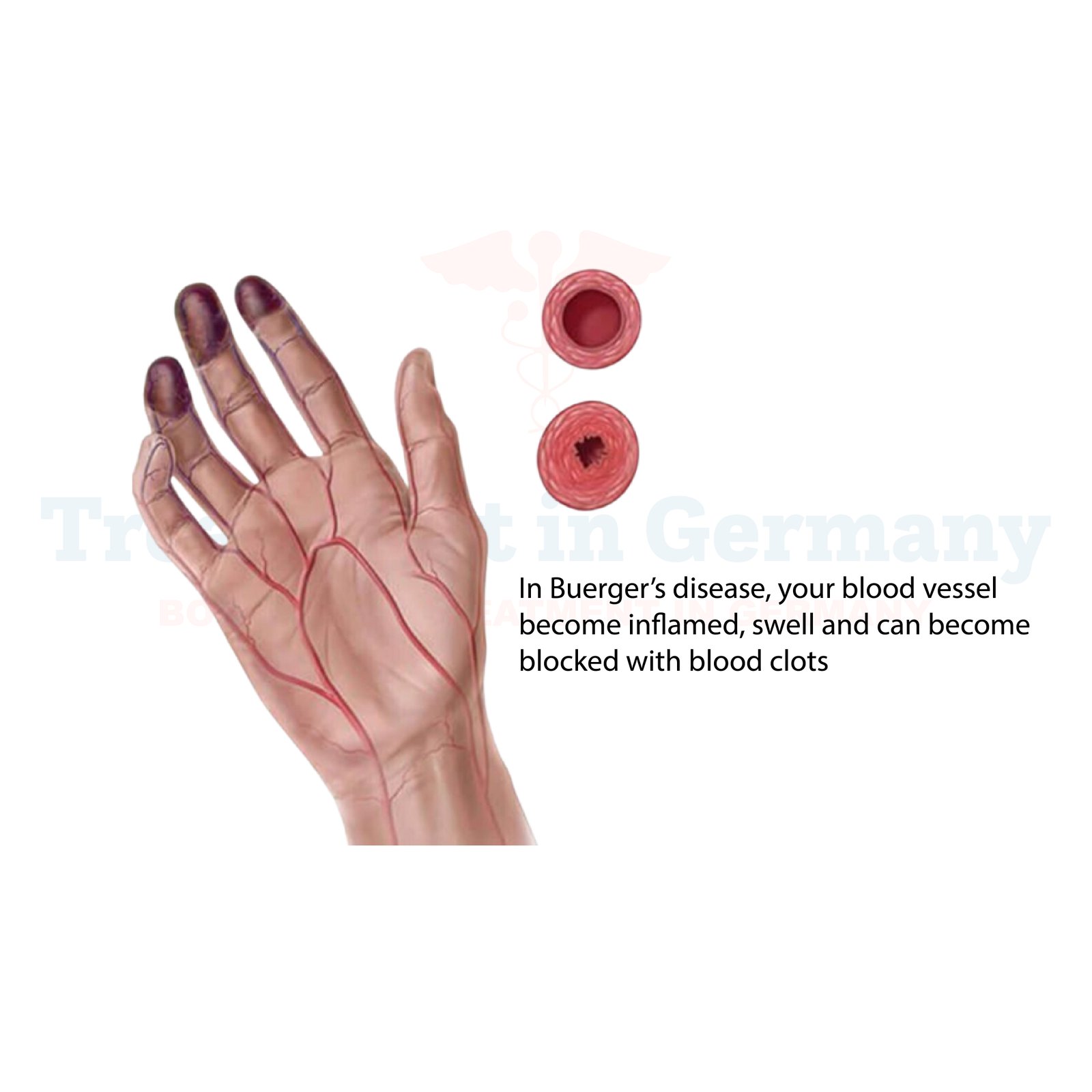What is Buerger's Disease (Thromboangiitis Obliterans)?
Buerger's Disease, also known as Thromboangiitis Obliterans, is a rare condition affecting the arteries and veins of the arms and legs. It primarily occurs in young to middle-aged adults, especially those who smoke or use tobacco products.
Buerger's Disease is characterized by inflammation and blood clot formation in the small and medium-sized blood vessels, leading to restricted blood flow to the extremities.
Side effects of Buerger's Disease (Thromboangiitis Obliterans):
The most common symptoms of Buerger's Disease include pain, tenderness, and inflammation in the limbs, particularly in the hands and feet. Patients may also experience intermittent claudication,
which is pain or cramping in the legs during physical activity due to inadequate blood supply. In severe cases, tissue damage, ulcers, and gangrene may develop, potentially requiring amputation of affected limbs.
How is Buerger's Disease (Thromboangiitis Obliterans) diagnosed?
Diagnosing Buerger's Disease typically involves a thorough medical history review, physical examination, and specialized tests. Doctors may perform blood tests to check for inflammation markers and imaging tests such as Doppler ultrasound or angiography to assess blood flow and detect any arterial blockages or abnormalities.
A biopsy of the affected blood vessels may also be conducted to confirm the diagnosis.
Potential treatments of Buerger's Disease (Thromboangiitis Obliterans):
While there is no cure for Buerger's Disease, treatment focuses on managing symptoms, preventing complications, and promoting smoking cessation. Lifestyle modifications such as quitting smoking and avoiding tobacco products are essential in slowing down the progression of the disease.
Medications like antiplatelet agents and vasodilators may be prescribed to improve blood flow and relieve pain. In some cases, surgical interventions such as sympathectomy (nerve surgery) or bypass surgery may be considered to bypass blocked arteries and restore blood flow to the affected limbs.
Additionally, regular monitoring and follow-up care with healthcare providers are crucial to managing Buerger's Disease effectively and preventing complications.
👉 Contact us for further information and receive a complimentary consultation.


.webp)
 (1).webp)

.webp)
 (1).webp)


.webp)
 (1).webp)

.webp)
 (1).webp)
